EY refers to the global organization, and may refer to one or more, of the member firms of Ernst & Young Global Limited, each of which is a separate legal entity. Ernst & Young Global Limited, a UK company limited by guarantee, does not provide services to clients.

Authors: Kim Tang, Partner, Assurance Services, EY Canada and Jeannine Pereira, Director, Canada Talent Team, EY Canada
Progressing gender equity in the real estate industry can only happen when leaders of all genders work together, leading authentically and purposefully.
In brief
- When people are free to lead authentically and purposefully, they’re more likely to succeed at work.
- Despite years of progress towards greater gender equity in the real estate industry, key barriers continue to hold women back from being able to fully be themselves at work.
- Leaders of all genders can transform that reality by setting out with intention to communicate openly, build support networks and encourage diverse perspectives.
Purpose-driven, transformative leaders are more resilient, engaged and likely to stay with their organization. When we’re comfortable leading authentically, with our own personal purpose front and centre, we’re more likely to succeed at work and beyond. In real estate, hospitality and construction (RHC) obstacles continue to prevent many women from being authentically themselves at work. The good news is: that’s starting to change.
How is authenticity evolving within real estate, hospitality and construction?
By the numbers, a recent EY poll of attendees at a women-in-RHC event showed nearly 35% only feel comfortable bringing their true, authentic selves to the workplace sometimes. Just shy of one-third see inconsistencies in the ways their organization values diversity across traits, skills, behaviours and styles. They were equally divided on whether their organization encourages them to show up authentically at work.
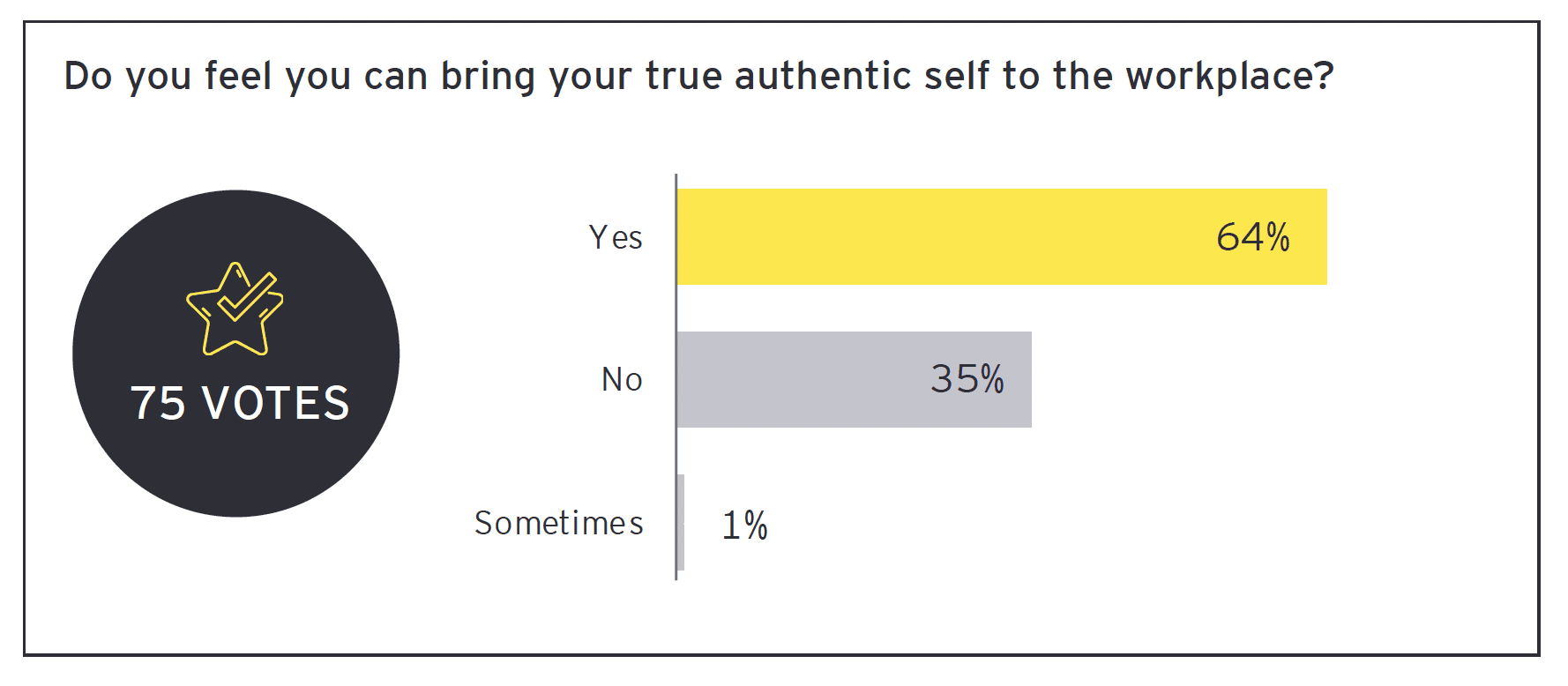
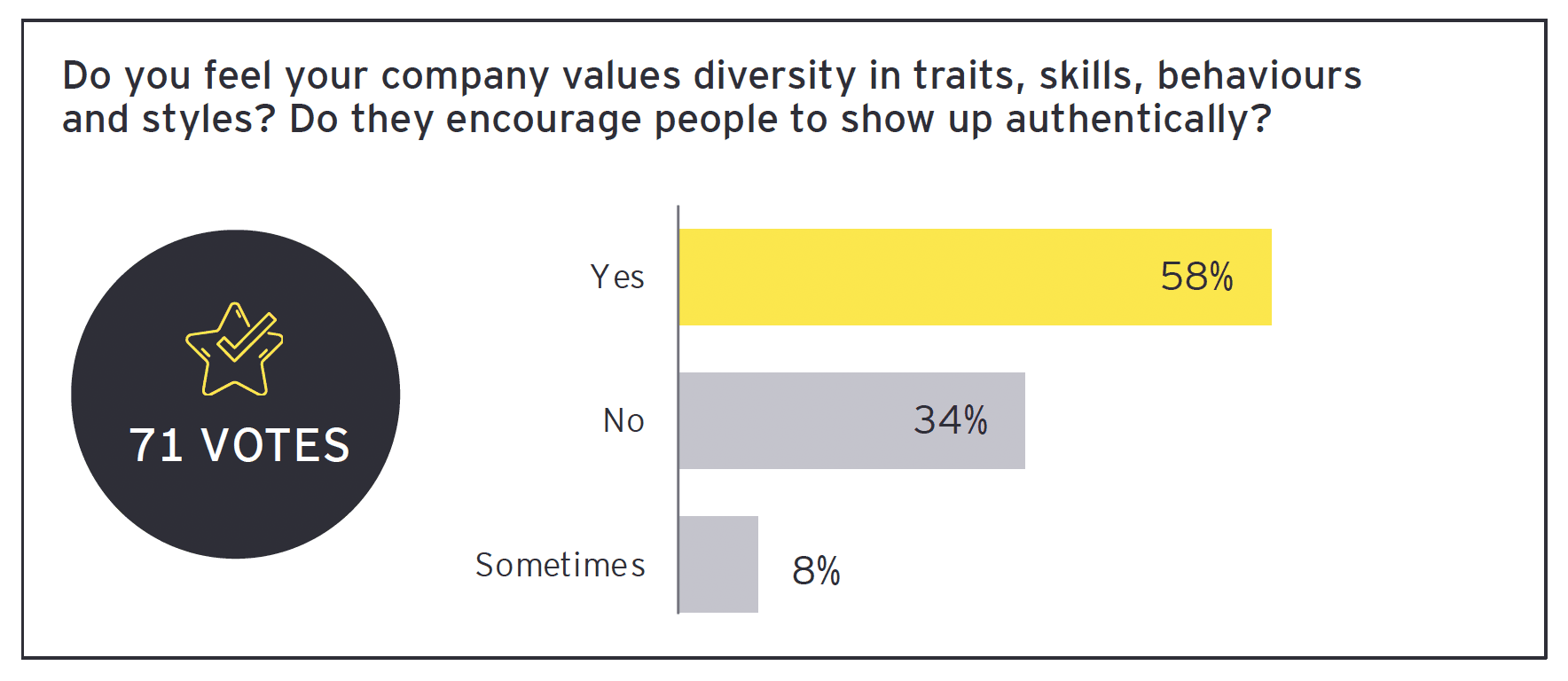
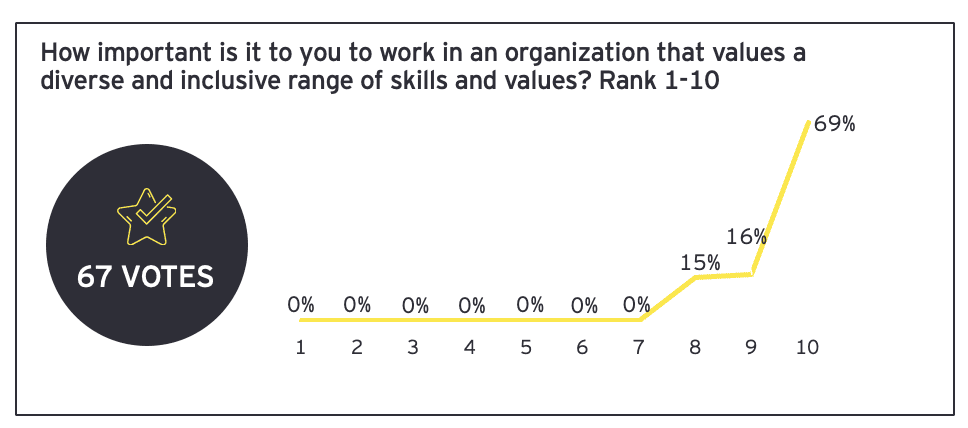
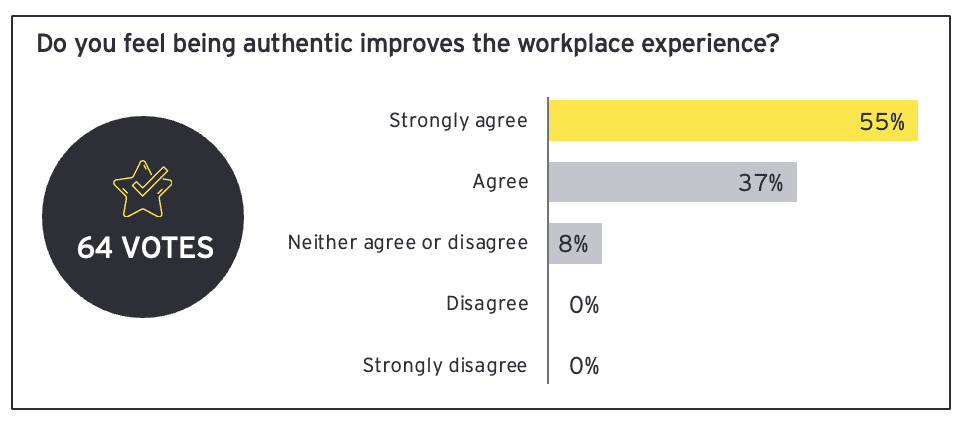
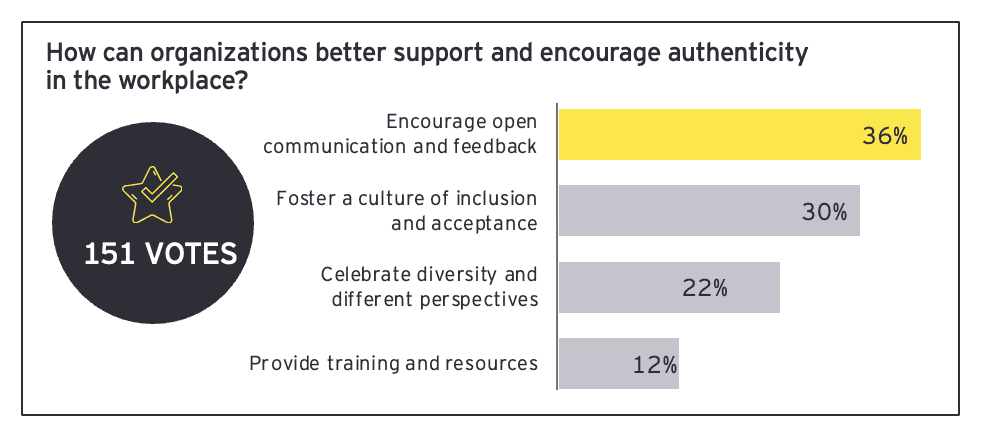
In practice, those numbers come to life in a wide range of ways. For one woman executive, it meant feeling the need to downplay femininity to be taken seriously on construction sites. For another? It took shape in an unwillingness to talk about children or family life, lest male counterparts think she may not have the bandwidth to deliver for the business.
That said: this snapshot also reflects a significant portion of women who do feel comfortable being their full, authentic selves at work in the industry. And we can build on that momentum to catalyze further change.
We’ve long known that diversity is good for people and the organizations they serve. Leaders who have articulated a personal purpose are four times more engaged with their work, and six times as likely to want to stay with the company, compared to those who haven’t defined that central mission.
These purpose-driven leaders also cite a significantly higher sense of wellbeing and are six-and-a-half times as likely to report greater resilience than those who feel unable to lead authentically at work. What’s more, living with personal purpose increases longevity, life satisfaction and financial success, while reducing stress, depression, loneliness and anxiety. All of this is good for people working in RHC, and for the industry itself.
So how can we transform that potential into additional cultural change?
Uplift and inspire one another to progress gender equity together.
Leaders of all genders must work together to make that happen now. How?
1. Use authenticity to open up lines of communication. Trust, transparency and integrity are table stakes in a corporate culture where anyone can feel free to be authentic at work. Those qualities form the foundation of the culture. When the lines of communication are open, the environment itself becomes more welcoming and inclusive. People should be encouraged to speak up, share insight and not compromise who they are to contribute fully. When leaders model that behaviour in their teams, it creates a positive ripple effect that helps everyone else get comfortable doing the same.
2. Take action to build support networks. Connecting mentors, sponsors and allies is crucial for a more inclusive corporate culture to emerge. This is bigger than a project that sits at the side of a leader’s desk. We should make it a priority for people to carve out time to establish new networks, mentor one another and develop a personal “board of advisors” that can foster mutually beneficial representation, as well as conversations and advice. When we bring this formally into the scope of a leader’s role, we help give more women greater access to the kind of relationships they need to dismantle silos, learn from one another and support authenticity at work. This can have a catalytic impact on the organization, as mentees become mentors and sponsors to others across the company and the wider industry.
3. Celebrate diversity to encourage different perspectives. Open and honest conversations are only one part of the puzzle. For women to feel more comfortable being their authentic selves at work, they must also see that diversity isn’t just a nice to have — it’s absolutely valued and celebrated. Organizations that provide training and resources on inclusion show their people that this is a priority. Recognizing and encouraging perspectives and contributions reinforces that diverse thinking is valued. These may sound like small acts. But carried out deliberately and consistently, they can begin to change the way people show up at work. All of this encourages a more purpose-driven approach to leadership grounded in the ability to be authentic in the workplace.
What’s the bottom line?
Progressing gender equity in the real estate industry — and across sectors — can only happen when leaders of all genders work together. That means getting more deliberate about communicating openly, establishing support networks and encouraging a broad range of diverse perspectives. Investing in these areas now can amplify momentum and help women make even more progress now.
Summary
Key barriers continue to hold women back from being themselves at work, despite years of progress towards building gender equity in the real estate, hospitality and construction industries. When women are free to lead authentically and purposefully, they’re more likely to succeed in their careers. Leaders of all genders can support this transformation by communicating openly, building support networks and encouraging diverse perspectives.



